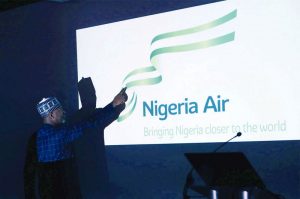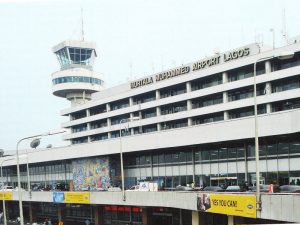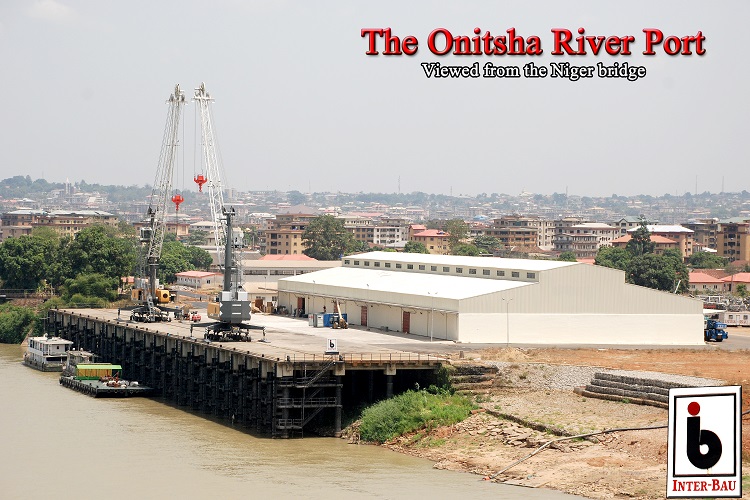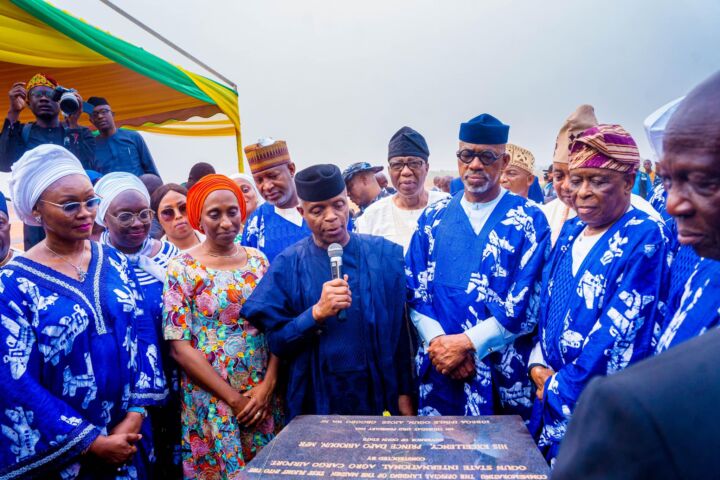Recently, the Federal Government made its intension public to concession four busiest International Airports including Lagos, Abuja, Port Harcourt, and Kano ports.
However, ever since the plan was made public, industry stakeholders have started giving serious warning signals.
Already, aviation workers and stakeholders have faulted the Outline Business Case and unresolved debt crisis that await potential new owners.
Ab-initio, the Federal Executive Council (FEC) in 2016, approved the concession of the four major airports in a move to have them run efficiently and profitably.

Business Hilights recalls that the request for qualification (RFQ) to run the facilities efficiently and profitably is open to firms or consortia with track records in airport terminal management and net worth of N30 billion per bidding firm or consortium. The concession is billed to run for 20 to 30 years tenure in a Build, Operate and Transfer (BOT) model.
Though workers’ anxiety over looming job losses has been dismissed, the concession plan is already enmeshed in transparency doubts, alleged undervaluation of asset and drawn-out debt crisis at the Federal Airports Authority of Nigeria (FAAN).

Key observation of industry stakeholders is that the Ministry of Aviation has not learnt any lesson nor cautious of reputation management to resolve the bitter brawl between Bi-Courtney Aviation Services Limited (BASL) and FG/FAAN on the Murtala Muhammed Airport II (MMA2) – the premiere concession in Nigerian aviation.
Besides, experts are arguing that the Minister’s plans on the aviation had always been unsuccessful.
Recall that shortly after the Minister of Aviation, Hadi Sirika was sworn in 2015, rolled out the aviation road map for stakeholders’ buy-in. Contained in the agenda was the plan to float a new national carrier, concession all airports to the private sector, establish an aircraft leasing company, and have a homegrown Maintenance Repair and Overhaul (MRO) facility, among others. None of these has seen the light of day.
In his lead argument, Sirika acknowledged the yawning gaps and poor service delivery at the airports, unfortunately, “the government has no money to invest in aviation infrastructure.”
He explained that at stake is the concession of terminals and not the airports as a whole, as misinterpreted by some people. He said unlike what the past administration tried to do by selling off the airports, the government’s dwindling revenue made it imperative to consider private partnership in the provision of airport infrastructure.
“What we are trying to do is to keep assets of the people for the people. We are not trying to sell the assets of Nigerians like the last administration tried to do. What we are doing is for good service delivery. They will revert back to the people. What they are doing is to assist to provide these facilities,” Sirika said.
 FAAN has operated 22 airports on behalf of the government for decades. Comparatively, the number of airports is a record in Africa, but not one to envy. At least 19 out of the 22 are listed as unviable and operating at a loss.
FAAN has operated 22 airports on behalf of the government for decades. Comparatively, the number of airports is a record in Africa, but not one to envy. At least 19 out of the 22 are listed as unviable and operating at a loss.
Currently, except the trio of Murtala Muhammed International Airport (MMIA), Lagos, Nnamdi Azikiwe International Airport (NAIA), Abuja, and Port Harcourt International Airport (PHIA), Rivers State, none of the other 19 airports has sufficient revenue to cover the cost of operations alone.
In his lead argument, Sirika acknowledged the yawning gaps and poor service delivery at the airports, unfortunately, “the government has no money to invest in aviation infrastructure.”
He explained that at stake is the concession of terminals and not the airports as a whole, as misinterpreted by some people. He said unlike what the past administration tried to do by selling off the airports, the government’s dwindling revenue made it imperative to consider private partnership in the provision of airport infrastructure.
“What we are trying to do is to keep assets of the people for the people. We are not trying to sell the assets of Nigerians like the last administration tried to do. What we are doing is for good service delivery. They will revert back to the people. What they are doing is to assist to provide these facilities,” Sirika said.
But, the coalition, made up of the Nigeria Labour Congress (NLC), National Union of Air Transport Employees (NUATE), Air Transport Services Senior Staff Association of Nigeria (ATSSSAN) and Association of Nigeria Aviation Professional (ANAP), faulted the rationale behind concession of viable airports and not the unprofitable ones.
According to the General Secretary of NUATE, Ocheme Aba, there remains no clarity on the question of the semi-concession that already exists through the Chinese loan facility.
Aba added that a cursory look through the Outline Business Case (OBC) showed that the promoters were unsure of the concept to adopt between Build Operate and Transfer (BOT) and Rehabilitate Operate and Transfer (ROT).
“This apparent confusion, to us, stems from an established fact. In these particular terminals (Lagos, Abuja, Port Harcourt and Kano), there is nothing to build or rehabilitate. In that case, if there should arise a need for expansion in the terminals (which is not envisaged in another 25 years), then the Green Fields concession option (which means building new terminals) would have been more applicable”.
He noted that the terminals earmarked for concession are brand new 21st century terminals, which have no need for any significant investment other than maintenance in the next 25 years.

On the sharing formula, Aba said that the economics of the concession do not add up. While the profit-sharing ratio is proposed to be 60:40 in favour of the Concessionaire, “the disadvantaged FAAN is made to bear the repayment of the $1 billion loan utilised to build same terminals, continue to pay emoluments of its staff and pensioners, return 25 per cent of its IGR to the FG under the Fiscal Responsibility Act, and maintain the remaining 18 airports in Nigeria. Unless through some abracadabra, there exists no possibility of FAAN meeting even a quarter of the above enumerated obligations under this obnoxious sharing formula.”
As a Caveat Emptor, chief scribe of the Nigerian Union of Pensioners (NUP), FAAN branch, Emeka Njoku, warned prospective bidders to be wary of over 60 pending litigations arising from several faulty concession agreements, including the BASL and FG/FAAN faceoff over MMA2.
Also speaking, former Director-General of Nigerian Civil Aviation Authority (NCAA), Dr. Harold Demuren, on his part, warned that nobody would invest in aviation in the country until all concession issues pending in court are resolved.
Demuren averred further that “We need to resolve all issues regarding policy inconsistencies that came with many of these concessions. We inherited problems with Chief Harry Akande and Dr. Wale Babalakin’s concessions and FAAN should sit down to resolve all lingering issues before we go ahead with this new concession plan.”









